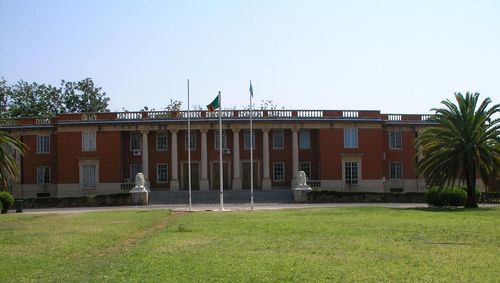By Charles Mafa
A Principal Internal Auditor within the Ministry of Finance, who bravely blew the whistle regarding a massive embezzlement scandal within the Ministry of General Education, has initiated legal proceedings by filing a lawsuit against the Ministry of Finance, the Anti-Corruption Commission (ACC), and the Drug Enforcement Commission (DEC) in the Lusaka High Court.
The purpose of this legal action includes seeking an order directed against the DEC not to evict him from the safe house, among other remedies.
In 2021, the auditor was re-assigned to investigate financial irregularities within the Ministry of General Education. During this investigation, he uncovered extensive money laundering and corruption schemes involving public funds.
According to documents filed in the Lusaka High Court, the auditor has taken legal action by initiating a judicial review. This legal move seeks to obtain an order challenging DEC’s decision to evict him from the safe house he has occupied for over two years.
The legal representatives of the whistleblower have also extended the scope of the lawsuit to include the ACC. The allegations against the ACC relate to their failure to protect the whistleblower. Furthermore, the Ministry of Finance has been included in the lawsuit for transferring him from Lusaka to Mongu in Western Province, and withholding his salary since January 2023. Surprisingly, both institutions were fully aware of the auditor’s placement in a safe house, a measure intended to ensure his safety.
MakanDay has uncovered information indicating that the ACC had written to Felix Nkulukusa, the Secretary to the Treasury, in December 2021, urging him to protect the whistleblower.
The embezzlement scale
In August 2022, Transparency International Zambia (TIZ) conducted its own independent investigation that unveiled the embezzlement of over K1 billion from the state treasury through fictitious allowances and a five-year payroll fraud.
Notable examples of this fraud include K21 million spent on unauthorized travel allowances for senior Ministry of General Education officials and payments exceeding K2 million for goods that were never delivered.
Additionally, there was a case involving the theft of K530,000 at the Provincial Education Office in Kabwe, Central Province.
Following these financial irregularities, both the ACC and DEC were alerted, leading to the arrest of some senior government officials.
In an attempt to silence the whistleblower, a bribe offer of K8,000 was made, and K5,000 was deposited into the auditor’s account by a Ministry of General Education official. Surprisingly, the ACC has yet to arrest the individual who offered the bribe, despite the money being frozen in the auditor’s bank account for over two years.
The auditor expanded his investigation to the Ministry of Finance, where he uncovered a significant money laundering operation, exposing illicit transactions totaling more than a billion kwacha. This extensive money laundering network had been active since the early 1990s and ultimately resulted in the arrest of 20 individuals.
Among those arrested were prominent figures such as Chikuli Mukuba, the Permanent Secretary in the Ministry of Finance, Kennedy Musonda, the Accountant General, Mulonda Chibwe, the Controller of Internal Audit, and several others.
Details of harassment
The victimisation of the whistleblower has taken a distressing turn, with unwarranted disciplinary actions initiated by senior government officials at the Ministry of Finance. The auditor was abruptly transferred to Mongu in the Western Province, a move lacking any justifiable rationale. Since January of the current year, his salary has been deliberately withheld, and he has now been entirely removed from the payroll, intensifying his ordeal.
MakanDay has learned that the whistleblower, placed in a safe house while awaiting further investigation and potential prosecution of those responsible for the uncovered offenses, is now facing other victimisations by certain high-ranking government officials who escaped arrest.
In response to the actions of certain senior government officials, the ACC issued warning and caution statements, urging restraint and advising against interference in the ongoing investigations, as well as any further mistreatment of the Auditor. Unfortunately, these warnings were blatantly disregarded, and the implicated senior government officials persisted in their victimization of the Auditor.
Despite these troubling developments, the ACC has yet to provide a response to MakanDay’s inquiry regarding the absence of an arrest for the individual who paid the bribe.
Doubts Surrounding Hichilema’s Anti-Corruption Commitment
All these events are unfolding under the administration of President Hakainde Hichilema, who came into power with a commitment to combat corruption and make Zambia’s economy more attractive for investors. However, his dedication to this cause is now being questioned, particularly in light of his promise to protect whistleblowers.
As a whistleblower who has exposed rampant corruption and theft, the auditor is protected by the provisions outlined in the Public Interest Disclosure (Protection of Whistleblowers) Act No. 4 of 2010.
Part II of the Act, specifically in section 10, clearly stipulates that “An employer shall not subject an employee to any occupational detriment on account, or partly on account, of the
employee having made a protected disclosure or public interest disclosure.”
The Act defines ‘occupational detriment’ as including disciplinary action, dismissal, suspension, demotion, harassment, intimidation, or involuntary transfer due to the disclosure.
Call for action
Rueben Lifuka, former TIZ president, described what is happening to the whistleblower as “a really sad development… which calls for these perpetrators of this harassment to be identified and accordingly dealt with.” He said, “protection of whistleblowers should be sacrosanct if indeed we are to fight corruption and all forms of malfeasance.”
“Whistleblowers take huge risks in coming forward to give information of what they believe to be wrongdoings in their workplace, and such harassment and uncalled-for disciplinary actions will only serve to deter any other persons from coming forward,” he said.
Lifuka, who called for law enforcement to be strengthened in order for them to discharge their functions in a timely manner, blamed “the lengthy and at times unnecessary procrastination in the investigation process,” which exposes whistleblowers and witnesses to harassment.
Photo supplied

Discover more from MAKANDAY
Subscribe to get the latest posts sent to your email.



